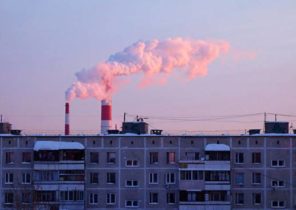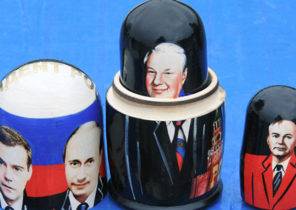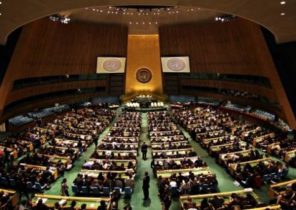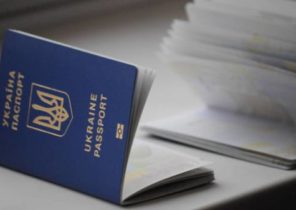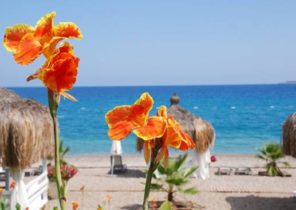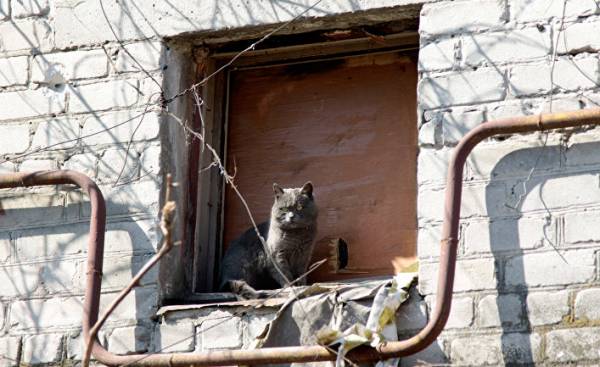
The first part: Georgia, part two: Transnistria.
Facts about Ukraine
Population: 45 million inhabitants.
Capital: Kyiv, 2.8 million residents.
About the conflict in a nutshell: After the Pro-European revolution in 2014 Ukrainian interests clashed with interests of Russia, which annexed the Peninsula of Crimea and orchestrated an armed uprising in the Eastern parts of the country.
The separatist republics: the Donetsk people’s Republic, 1.9 million inhabitants, the capital of Donetsk (950 thousand); Lugansk people’s Republic, with 1.2 million inhabitants, the capital of Lugansk (426 thousand).
The data is very inaccurate, as there is a war. On illegally annexed by Russia Peninsula of Crimea is home to approximately 2.3 million people.
Maori, Ukraine — this is what happens when the European war becomes everyday life, even for those who live directly in its center.
At the border checkpoint near the Majorcan village barn, knocked out of unplaned planks and a few logs as the frame. Simple door slams shut due to the long stretched spring. “Bang!”
Natasha Solomakha, 53, this sound does not hear, as the deaf claps howitzers somewhere in the distance: the landscape as if dropped a heavy curtain.
What they shoot today?
Who knows. The only thing Natasha knows is that fire is usually worse in the evening, but if they creep too close, she goes down to the basement and sleep there. She and her husband live in the village.
Natasha invites you to café, arranged in the barn window which is inserted a piece of transparent plastic. Here she sells pies, bread, soft drinks, water, coffee, tea and chocolate. The chocolate brand “Roshen”, owned by Ukrainian President Poroshenko. About Natasha too does not think, because it has nothing to doors slamming, deaf cannonading or the long line of cars on the road outside.
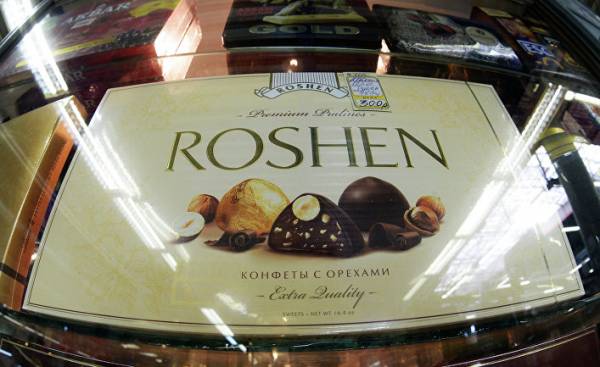 © RIA Novosti, Ramil Sitdikov | go to fotomechanischem banned the supply to Russia of Ukrainian chocolate Roshen
© RIA Novosti, Ramil Sitdikov | go to fotomechanischem banned the supply to Russia of Ukrainian chocolate Roshen
If you decide to go along the road and count you counted 205 cars. Each sitting frustrated people — desperate, angry, sad, frightened. No, frightened is probably still there.
They wait 12 hours, 24, 30 — they sleep in cars, eat bring food (eggs, bread, tomatoes, water, drink coffee and tea from a thermos) and wander up and down hystertomy the asphalt road, where dust, cigarette smoke, suffocating petrol fumes and God knows where from undertaken flakes of soot only enhance the feeling of the trap.
This is the territory controlled by the government. On the other side of the border, too, is Ukraine, but it is called Donetsk people’s democratic Republic. In international reports Donetsk usually called the territory controlled by the rebels, and in fact in the region dominates Russia, ruling with the help of soldiers, weapons and local militia.
Despite the fact that the war to date has claimed 10 thousand lives, both sides remain bound to each other, as evidenced by these 205 cars lined up a string.
Alexander Stanovich, a man with a mouth full of gold teeth, sits in his “Lada” with the window open.
“We just had to go to the Bank in Bakhmut (on the Ukrainian side) to confirm that I was alive. Otherwise I would not get a pension. We have been traveling for four days. Four days!” — Alexander’s wife in the passenger seat starts to cry.
“Our daughter died three years ago. She was sick, and when the war started, all the doctors disappeared, and no one could help her”.
Alexander was gripping the steering wheel. He looks at the car in front.
“For 37 years I worked in a coal mine. 37 years”.
Another “Lada”, blue battered, heavily loaded. Paul Bodary, 48 years old, sits in the driver’s seat:
“I worked as a mechanic in the mine. Two years I worked without pay, then fired me. No job, no money. They owe me salary for two years! We survive thanks to our garden where we grow fruits and vegetables. My wife worked in a rehab facility, but the building was hit by a grenade, so the clinic no more.”
The wife sits next to, parents of Paul from behind. They were also in Bahmut, to deal with the pension. New rules. Pensioners are required every three months to personally appear at the Bank to show that it is alive. Otherwise, the money will freeze.
Paul brilliant, tired eyes, and he is unshaven. No one else in the car says nothing.
“Our parents help us. They buy products on their pensions,” he says.
Away in the barn café Natasha pork weighed on the scales. When the environment is full of dust, dirt and despair, it is even more important to maintain hygiene and neatness. It puts on hand a plastic bag when weighing products for customers.
With some perspective, this could be the most common store. But at the prices it is evident that there prevails special circumstances. Natasha takes 25 hryvnia, about eight Swedish kronor per kilogram of meat. The city meat costs 27 USD, but talking about ready meals. As the meat can lose 20-30% of its weight during cooking, when evaporated a lot of water, it becomes clear that to buy Natasha a lot more.
It doesn’t seem a lot of money, but considering that then the pension is 3200 UAH per month, that is approximately one thousand Swedish crowns, it is clear that the majority of people sitting in the car queue, prefer to settle for bread and water.
The cafe belongs to a businessman in Kiev. Natasha day, and then the day resting. At night she tries to sleep, sitting on the bench, shot down three boards.
If Natasha sells less than a thousand hryvnia per day, she gets 100 hryvnias of a salary, if it is more then 200. Last week was bad. She rescued a total of 160 USD for the whole day.
In her spare time she runs the house, cooks the meals and works in the garden: growing potatoes, tomatoes, carrots, garlic, Basil, cherries, strawberries, apples, black currants, walnuts and hazelnuts. Nuts it sells.
“I go to bed at nine PM and get up at six in the morning. I’m always tired, I have sore feet and back,” says Natasha.
A man comes — Bang! again there was the sound of doors slamming and buys a big bottle of Sprite and four loaves of bread. “The guards have twice sent me to the back of the line! They claim that I was trying to crawl forward!” — he’s angry, he’s in a hurry. He needs to Donetsk to undergo treatment for kidney stones, he had a friend in the hospital.
“When I’m working in the garden, — Natasha speaks, — sometimes in my side snipers, just for fun. To scare. This happens once or twice a month. Once I heard flying bullet. It was like she was vibrating”.
She is trying to portray the sound: “ssssssssss!”
Buses pass by the car queue and release the passengers before the last checkpoint, where they must present baggage and documents. “Prepare the documents. Show only documents” — written on one of the plates. Mostly in buses to the elderly. They are in a hurry to leave and scared to checkpoint, so as not to wait too long in queue — Oh, those eternal queue!
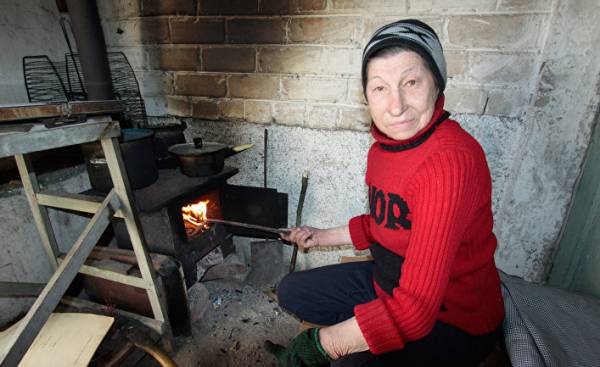 © RIA Novosti, Sergey Averin | go to votebanning in the border village of Donetsk-Northern in the Donbass
© RIA Novosti, Sergey Averin | go to votebanning in the border village of Donetsk-Northern in the Donbass
There comes a man with a TV. And there’s a man with two Bicycle tires over his shoulder. Mortally tired lady, breathing heavily, leans on a cane. A woman carrying a small child. Farmers in black jackets and hats. Urban women in long coats with fur collars. A man runs with a pack of diapers in one hand and a TV in the box in the other.
Almost all are crammed with cheap plastic bags, but one woman — a small and elegant patent handbag.
Sweaty face.
The guards red from anger and stress face. He waves his arms at the man in “Volga”, which tried to avoid the turn — turn around! become last! The man in “Volga” clasps his hands and raises his eyebrows in surprise. I did something not so made?
“Ambulance” with the siren and flashing lights rushing straight to the crowding mass of people. Some women a heart attack. The first, and hopefully last for today. Four days ago, heart attacks are piled three.
The woman will probably die before the ambulance has time to take her to the hospital in Bakhmut.
For a soldier who got shot in the stomach, everything turned out more successfully. He’ll survive. But soldier occurred yesterday at a mine, died.
Along the road are red and white warning signs with skulls and the words “Caution, mines”. But the old man is wanted to spit. They go into the bushes to pee.
What else can they do? Street toilets, downed painted planks, all of these people do not have. For the toilets, hang blue-and-yellow signs with the logos of the EU, which suggests that the European Union has contributed to the improvement of the border crossing in Mayorsk.
The organization for security and cooperation in Europe, OSCE has observers along the front line. The observers move with both parties and with the meticulousness of an accountant report on each artillery shot, every volley and every exploded mine, which only can notice.
“The parties agree on a new ceasefire. The next day we are at the front, and they barely break the agreements, — said one of the OSCE observers. They stop shooting when they see us, and begin again when we leave. Sometimes it seems that our task is to wave the flags of the OSCE by showing the people that has not forgotten about them”.
“I’ve stopped trying to follow all these armistice agreements,” says the observer.
So, people who previously worked together in the Ukrainian coal mines, lived together in cities and villages, suddenly violently hated each other and nourish the overwhelming desire to kill each other? No, men, women and sometimes children are found in queues, talking, exchanging information together are suffering in anticipation of when things will get better — well, except when someone is trying to break the queue.
“That happens, nothing is accidental. All arrange somewhere above,” continues the observer of the OSCE.
Natasha in the café says that finds a bullet in his garden: short, she said, arrive from snipers, and long, more powerful, in her view, from the machine guns. In the early 2000s, she lived some years in Moscow. In the market where she worked, some crazy woman once shouted that in ten years there will be war. All laugh at her. But that crazy was right, says Natasha.
Before the war the Maori lived 800 people. When the fighting started, all left, left 140. But then many have returned, after all, there are still homes and gardens. Now live in the village of 400-500 people.
The new year on one house a grenade was thrown, but fortunately no one was hurt.
In the Zhovanka even worse. There is constantly a battle. Zhovanka is a couple miles away. Four months ago there were grenade fragments wounded six-year-old boy. He survived but never came back. This boy was the last child in the Zhovanka, now there were only adults.
I wanted to have children, says Natasha, but when I was young, getting pregnant could not. Then, when the medicine that I needed, she was already too old.
From the road you can hear the beeps. Growling motors. People shout. The three ladies organized a patrol and make sure no one cut the line. One of them stopped on the way at the back of the car, put his hands on the hood and yells: “stop, stop, Stop! Where are you going?”
Then a rumor: “They’re only letting 50 cars a day. All deployed back.”
Young soldiers at the checkpoint are on the right foot protection, not to hurt the knee by constant inspections of the bottoms of cars. They are looking for weapons, drugs, and large stocks of food. A is allowed to have a maximum of a pack of cigarettes and 75 kg of food. For your own use. Yesterday, they stopped a guy who had 50 kg of bacon. He was deployed.
“This summer I will try to start their own business, — said Natasha, — will Get a small refrigerator that will be able to carry along the line, selling water, ice cream and cold juice. And maybe some food. If it doesn’t work with the refrigerator, then I’d probably try to adapt with termosumki in the pram”.
She sits in a cafe at one of the two green plastic tables and stores recent sales in a notebook.
“My husband worked at the mine, says Natasha, But the mine shut down, and now he sits at home. He is a very busy man — constantly watching TV”.
She pauses for a minute and then says to soften his words: “He cares about the dog. Tolernece when you need to. Makes any man’s job. We have been married for 32 years.”
“It is unfortunate that I have no children, — Natasha speaks, — Every woman wants to have children.”
Away heard muffled explosions of cannon fire.
“I kind of got used to these sounds, sort of not. Sometimes I do not hear. If much shoot, you can make the TV louder.”

